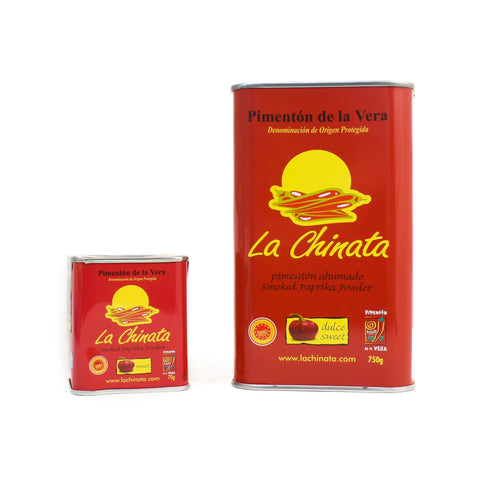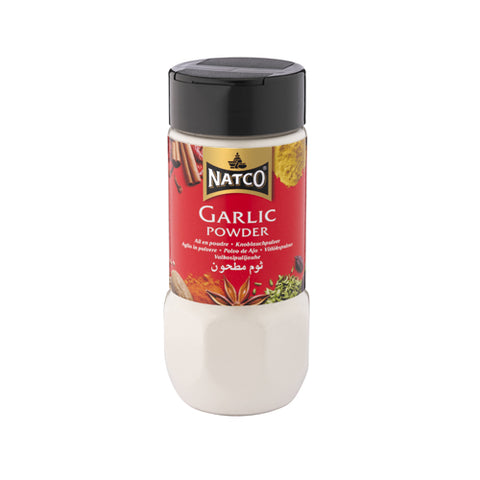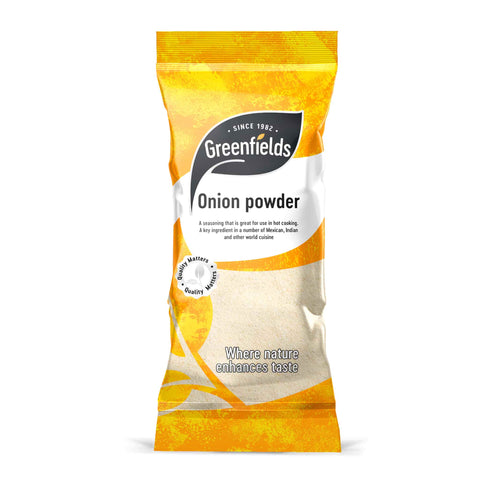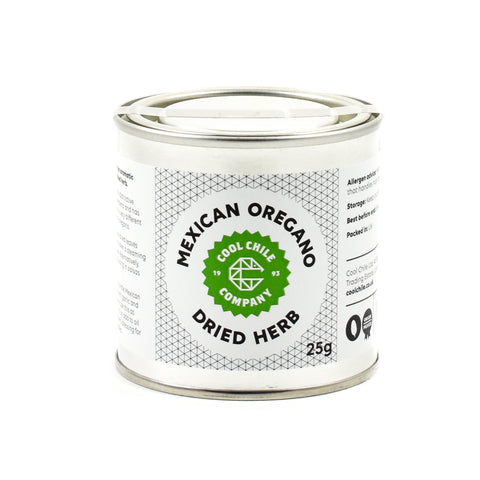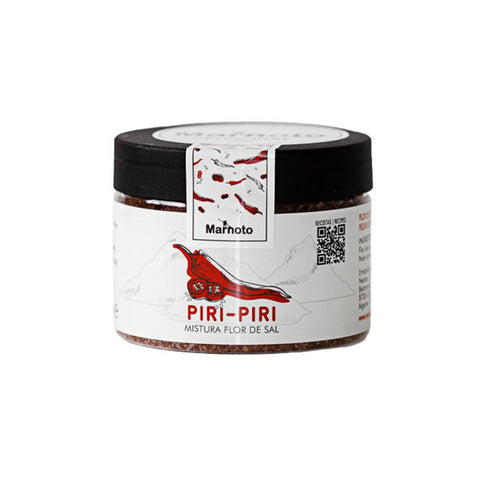The Ultimate Guide to Homemade Piri Piri Seasoning: Quick Step-By-Step

Piri piri seasoning, with its fiery warmth and depth of flavour, is a staple in many kitchens. Originating from Portuguese and African culinary traditions, this versatile blend has captured the hearts of spice enthusiasts around the globe.
But what exactly goes into the zesty blend? Read on to discover.
Buy Peri Peri seasoning here or browse more spices and spice blends.
Introduction to Piri Piri
Origin of Piri Piri
The origin of piri piri or peri peri seasoning is a blend of Portuguese and African culinary histories. The term "piri piri" actually means "pepper pepper" in Swahili, pointing to its African roots.
Portuguese explorers discovered these fiery peppers in Mozambique and Angola during the Age of Exploration. They brought the chillies back to Europe, where they became an integral part of Portuguese cuisine.
The spice blend that we know today combines influences from both continents, creating a unique and versatile seasoning. This cross-cultural exchange resulted in a spice mix that adds depth, heat, and a burst of flavour to a wide range of dishes, from grilled meats to seafood.
Understanding its origins helps us appreciate the rich history and cultural significance embedded in every pinch of piri piri.
Scroll down to see what you need to make your own. Or if you're looking for ready made, try this Greenfields Peri Peri.
Popularity in British Cuisine
Piri piri seasoning has experienced a surge in popularity within British cuisine, particularly in recent years. This rise can be attributed to the growing trend of global flavours and the influence of multiculturalism in the UK.
Restaurants and home cooks alike have embraced piri piri for its ability to add a bold, spicy kick to dishes. Chains like Nando's have popularised piri piri chicken, making the seasoning a household name.
Beyond the restaurant scene, British home cooks are increasingly incorporating piri piri into their everyday meals, from marinades and rubs to sauces and dips.
This widespread adoption is a testament to the seasoning's versatility and the British palate's evolving taste for spicier, more adventurous foods. Whether used sparingly for a mild heat or generously for an intense flavour burst, piri piri has firmly cemented its place in British kitchens.
Essential Ingredients
What Spices and Herbs are in Piri Piri
At the heart of piri piri seasoning are a few key spices and herbs that give it its distinctive flavour profile. The primary ingredient is, of course, the piri piri chilli, known for its fiery heat and slightly citrusy undertones.
These chillies are often dried and ground, forming the base of the blend. Complementing the chilli are garlic and onion powders, which add depth and a savoury backbone to the seasoning.
Paprika, either sweet or smoked, is another essential component, contributing a rich, red hue and a mild sweetness. Oregano and thyme are typically included to provide an earthy, herbal note that balances the heat.
Occasionally, bay leaf and basil make an appearance, adding subtle layers of flavour. Together, these spices and herbs create a complex and versatile seasoning that can elevate a wide variety of dishes, from grilled meats to roasted vegetables.
Sweet smoked paprika, or pimentón, adds a rich, smoky flavor to piri piri. Grown in Extremadura and oak-smoked, it infuses dishes with woody notes. Its "Pimentón de la Vera" DOP status ensures quality, and the coarser grind of La Chinata variety enhances the blend's texture and taste.
Garlic powder, made from dried and finely ground garlic, is a convenient addition to piri piri. It adds a strong, simple garlic flavor without the need for peeling and chopping, enhancing the overall taste of the blend.
Onion powder adds sweet onion flavor to piri piri without extra moisture or texture. It's perfect for spice rubs and enhances the seasoning mix with a savory depth.
Dried Mexican oregano adds a strong, herbaceous flavor with licorice-lemon notes to piri piri. Unlike Mediterranean oregano, it's related to lemon verbena, offering a unique twist to the seasoning blend.
Signature Chilli Peppers
The signature chilli peppers in piri piri seasoning are what give it its unmistakable heat and character. The most commonly used pepper is the African Bird's Eye chilli, also known as piri piri or peri peri chilli.
These small, potent chillies pack a significant punch, with a Scoville rating ranging from 50,000 to 175,000 units. They have a sharp, immediate heat that can be intense but is often balanced by the other ingredients in the seasoning.
Their slightly citrusy flavour adds a bright note that complements the earthy and savoury elements of the blend. In some variations, cayenne pepper or red chilli flakes might be used to adjust the heat level or to maintain consistency when Bird's Eye chillies are not available.
These signature chillies are crucial in defining the spicy, vibrant character of piri piri seasoning, making it a favourite for those who enjoy a bit of heat in their culinary creations.
Health Benefits
Nutritional Value
Piri piri seasoning not only adds flavour to your dishes but also comes with a range of nutritional benefits. The primary ingredient, piri piri chilli, is rich in vitamins A and C, both of which are essential for maintaining a healthy immune system.
Vitamin A supports vision and skin health, while vitamin C is a powerful antioxidant that helps repair tissues and boosts immune function. Additionally, chillies contain capsaicin, a compound known for its metabolism-boosting and anti-inflammatory properties.
The garlic and onion powders in the blend offer their own health benefits, including antimicrobial qualities and potential heart health support. Oregano and thyme add not just flavour but also antioxidants, which help combat free radicals in the body.
Overall, incorporating piri piri seasoning into your diet can contribute to better health, making it a delicious and nutritious addition to your meals.
Potential Health Perks
Beyond its nutritional value, piri piri seasoning offers several potential health perks that make it a beneficial addition to your diet. The capsaicin found in piri piri chillies is known for its pain-relieving properties, often used in topical creams to alleviate muscle and joint pain.
Capsaicin may also aid in weight management by boosting metabolism and increasing the feeling of fullness, which can help control appetite. The anti-inflammatory properties of capsaicin can contribute to reduced inflammation in the body, potentially lowering the risk of chronic diseases such as heart disease and arthritis.
Garlic and onion powders in the seasoning have been linked to improved cardiovascular health, thanks to their ability to lower blood pressure and cholesterol levels. Herbs like oregano and thyme offer antimicrobial effects, which can support overall gut health.
Integrating piri piri seasoning into your meals can thus provide a range of health benefits beyond its tantalising taste.
Cooking with Piri Piri
Popular Dishes
Piri piri seasoning is incredibly versatile, lending its fiery and complex flavour to a variety of popular dishes. One of the most well-known is piri piri chicken, where the seasoning is used as a marinade or rub before grilling or roasting the meat.
This dish has become a staple in both Portuguese and African cuisines and is a favourite in many British households. Another popular use is in seafood dishes, such as piri piri prawns, where the seasoning enhances the natural sweetness of the seafood with a spicy kick.
Vegetarians can also enjoy piri piri seasoning by using it to season roasted vegetables or tofu, adding a burst of flavour to these ingredients. It can even be used in sauces and dips, such as a piri piri mayonnaise, which pairs perfectly with chips or as a condiment for sandwiches.
The versatility of piri piri seasoning makes it a valuable addition to any kitchen.
Tips and Tricks
When cooking with piri piri seasoning, a few tips and tricks can help you make the most of its vibrant flavours. First, remember that a little goes a long way; start with a small amount and adjust to your taste to avoid overwhelming your dish with heat.
For an even distribution of flavour, mix the seasoning with a bit of oil or lemon juice before applying it to meats or vegetables. This helps it adhere better and penetrate the food more effectively.
If you're marinating meats, allow at least an hour for the flavours to meld, but overnight marination can yield even more intense results. When grilling, keep an eye on the food as the sugar in some piri piri blends can cause charring.
Finally, balance the heat by pairing piri piri dishes with cooling sides like yoghurt or cucumber salads. These simple tips can enhance your cooking experience and ensure delicious results every time.
Making Your Own Blend
Basic Recipe
Creating your own piri piri seasoning at home is both simple and rewarding. To start, you'll need a few basic ingredients: dried piri piri chillies or red chilli flakes, garlic powder, onion powder, paprika, oregano, and salt.
Begin by grinding the dried chillies into a fine powder using a spice grinder or mortar and pestle. In a bowl, combine 2 tablespoons of the ground chillies with 1 tablespoon each of garlic powder, onion powder, and paprika.
Add 2 teaspoons of dried oregano and 1 teaspoon of salt. Mix thoroughly to ensure all ingredients are evenly distributed. This basic recipe can be customised to suit your taste; for example, you can add a pinch of sugar for sweetness or a bit of thyme for an additional herbal note.
Store your homemade piri piri seasoning in an airtight container, and it will be ready to add a burst of flavour to your dishes whenever needed.
Customising Your Mix
One of the great advantages of making your own piri piri seasoning is the ability to customise the blend to suit your personal preferences. Start by adjusting the heat level: if you prefer a milder mix, reduce the amount of piri piri chillies and replace them with a milder chilli powder or even smoked paprika for a different flavour profile.
Conversely, if you love intense heat, add more piri piri chillies or incorporate cayenne pepper. You can also experiment with different herbs and spices. For instance, adding cumin can introduce a warm, earthy undertone, while a touch of lemon zest can enhance the citrus notes.
If you enjoy a smoky flavour, try incorporating smoked paprika or ground chipotle. The key is to start with the basic recipe and make small adjustments, tasting as you go.
This way, you can create a unique piri piri seasoning that perfectly matches your culinary style and taste preferences.
Try some of our piri piri ingredients below:
This flaky Portuguese sea salt is infused with piri-piri spices. It’s delicious on French fries and barbecued meat and fish.
With subtle heat and briny tang, this salt is a fabulous flavour enhancer. Use it to season Portuguese piri-piri chicken, rib eye steaks and prawns.
Portuguese sea salt is revered by top chefs around the world. It is a must-have ingredient for any keen cook. The bright white crystals have an incomparable taste.
Eat Grub peri peri crickets are a fun, sustainable alternative to crisps and nuts with a chilled beer or even as a rice topping. This pocket-sized snack pack contains roasted crickets with herb and chilli peri peri seasoning.
Crickets and other insects have long been enjoyed by cultures all over the world. They have a nutty flavour and light crunch, making them ideal snacks on the go or with drinks.

